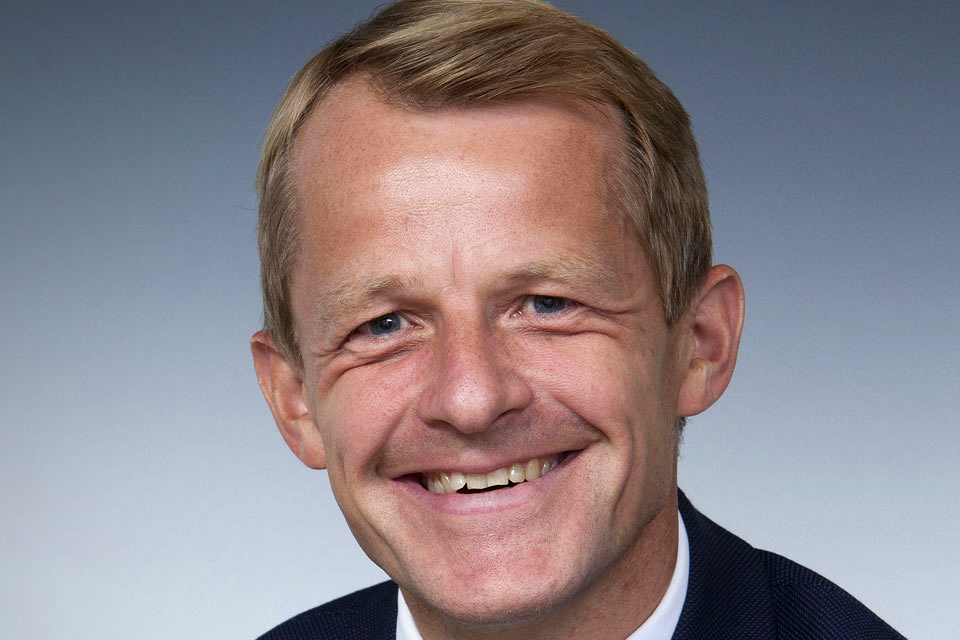Speech by the Chief Secretary to the Treasury, Rt Hon David Laws MP, on the OBR and spending announcements
Speech by the Chief Secretary to the Treasury.

Thank you.
As George just said, it is a great privilege and a great honour to be here, at the Treasury, in what is always the engine room of Government, but which is ever more important at this time.
The Treasury will be at the heart of the new coalition Government, dealing with some of the most serious and urgent challenges facing us as a country.
And I want there to be no doubt.
We have to get the economy moving. We have to repair the public finances.
The task ahead is nothing short of colossal.
We will face that task, not as Liberal Democrats or as Conservatives, but as a united front of Treasury Ministers.
Putting the national interest first.
George and I are united in our resolve to deal urgently and decisively with the unacceptable state of our public finances.
We are in agreement that it is both possible and necessary to start taking action this year.
As set out in the Coalition Agreement, the Government’s aim is for a faster reduction in the deficit, with most of the burden falling on reduced spending, rather than higher taxes.
We also committed to set out full and detailed spending plans at the spending review in the autumn.
But to show our resolve, we will make an early down-payment.
As George explained, we have already received advice from the Bank of England on whether it is advisable to start finding savings this financial year.
The Treasury and Departments across Whitehall are working round the clock, to see how these cuts can best be implemented.
I have seen their analysis, and I am satisfied that savings of this size - only about 1 in 100 pounds of public spending - can be taken out of budgets, without affecting the quality of key frontline services.
Over the next seven days, I will finalise with Secretaries of State the savings to be delivered in each Department.
And all Secretaries of State are committed to making sure savings are implemented in a way that does not affect the quality of key services received by the public.
I have and will reject any proposals which would damage key services or put at risk those on low incomes.
As already agreed, and announced by George, the Devolved Administrations will have the option of deferring their contribution to next year.
We are doing this to recognise the fact that the devolved Parliament and Assemblies in Scotland, Wales and Northern Ireland have already approved their spending plans for the current year.
The final detailed announcement on each Departments’ contribution will be made next Monday.
And as set out in the Coalition Agreement, we will also announce on Monday the use of a proportion of these savings to support the recovery.
Finally, it is critical that we look for savings and root out wasteful spending wherever we can.
That’s why, in addition to the £6bn of savings, the Chancellor and I have today asked Departments to review all pilots and new spending commitments agreed by the previous Government since the start of this year.
We need to test, in each and every case, whether they are affordable, whether they deliver value for money, and whether they remain genuine priorities for this Government.
Each Minister will review approvals given by their predecessor. And those requiring Treasury approval will have to be resubmitted to the Treasury.
Where projects are affordable, consistent with our priorities and good value for money, they will go ahead.
Where they are not they will be stopped.
There is no point, for example, in continuing to spend money on pilot schemes if we cannot afford to implement them.
This is due diligence by this Government in relation to some of the irresponsible decisions inherited from our predecessors.
But it is not a blanket cancellation of projects or pilots and we will of course continue to support the delivery of vital frontline services.
Let me make one final comment in conclusion. There is a very big job to be done to tackle the public sector deficit and nobody should doubt the determination of both coalition partners to take action which is early, decisive, credible and aggressive.
But this is not merely a coalition of competent accountants. The challenge we face is how to address the deficit, while protecting the quality of key services, making this a fairer country and ensuring that those on the lowest incomes are protected as far as possible from the actions that are necessary.
This will not be easy. But we are united in our determination to deliver.
I’ll now hand over to Sir Alan Budd. Thank you very much.
[Ends]